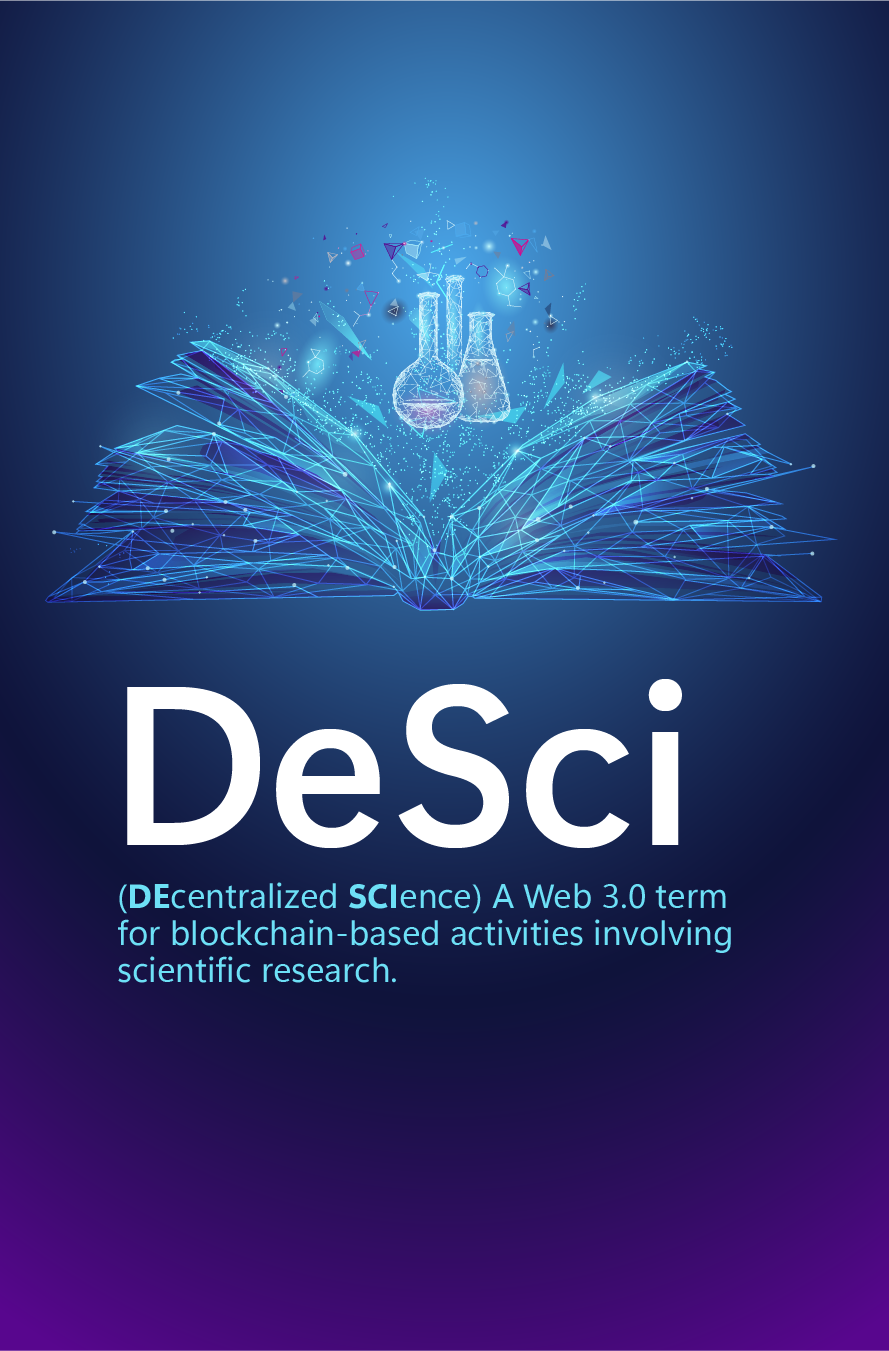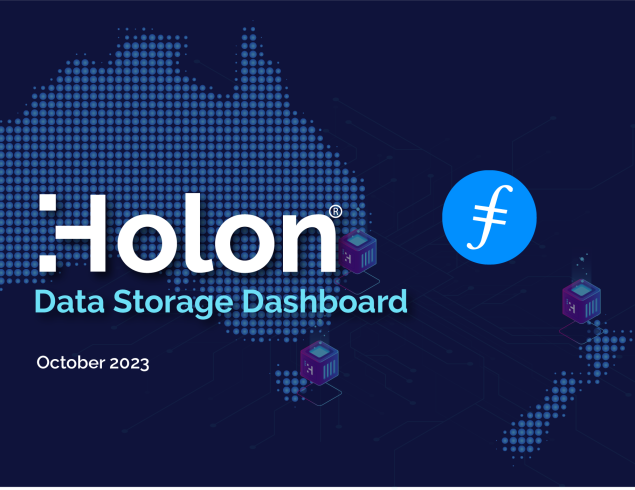Decentralized Science: How Scientific Research can be powered by Filecoin and Web 3.0
We know, just when you feel on top of the latest tech jargon, another term comes along. But this one is a biggie: DeSci, or Decentralised Science – and it’s solving a significant problem.
The scientific research community has been grappling with the challenges of storing vast amounts of data for decades. With the rise of big data and the increasing complexity of research projects, storage solutions developed in the 2000s are no longer sufficient. But it’s not just the size of research datasets that is causing issues, science is facing broader issues around data management, so much so that in 2016 the FAIR (Findability, Accessibility, Interoperability, and Reuse) guiding principles for scientific data management and stewardship’ were published in Scientific Data, with the purpose of improving the entire ecosystem.
The good news? Filecoin and, more broadly, Web 3.0 promises to revolutionize the way researchers store and access their data, making scientific research more efficient and collaborative than ever before.
What is Filecoin?
Filecoin is currently the largest distributed (the opposite of centralised) data storage network in the world, with a presence on all continents through more than 3,500 Storage Providers. In the Filecoin ecosystem, participants who build storage are paid for providing that storage in the network’s native currency FIL. The more storage capacity Storage Providers contribute to the network and the more clients they onboard result in the ability to earn greater FIL rewards.
As an open protocol, Filecoin significantly lowers the barrier to enter for small players to provide cloud storage services globally – in that way it’s been compared to Airbnb. Filecoin also offers unique – modern – features because the network is powered by a blockchain-based protocol and uses the InterPlanetary File System (IPFS) to identify data on the network (more in Figure 1, and below).
Research published in the Journal of Ambient Intelligence and Humanized Computing described it simply as “Filecoin’s decentralized storage network provides a cost-effective and secure solution for storing and managing large amounts of data, which can be particularly useful for scientific research projects.”
Figure 1: HTTP vs. IPFS
 Source: academy.moralis.io
Source: academy.moralis.io
What is IPFS?
IPFS is a distributed file system that enables users to store and access files in a decentralized manner. IPFS uses a ‘content-addressed’ system to identify and retrieve files, which means that files are identified by their content rather than their location. This makes it possible to store and access files from multiple locations simultaneously, improving accessibility and redundancy.
IPFS was actually first invented in 2015 by Stanford Graduate Juan Benet to enable people to distribute data more efficiently for the purpose of science. He later realised many more benefits of using content-addressing at scale and it then became the underlying architecture of Filecoin. IPFS’ features enable researchers to share and access data across different teams and organisations in a secure and efficient manner, which can improve collaboration and accelerate research progress.
DeSci
It’s Web 3.0 tools like Filecoin that have spurred this movement known as Decentralized Science, or DeSci, where a whole ecosystem of new companies are leveraging Web 3.0 to create new incentives to fund research or ensure existing research is valid.
DeSci solutions like Filecoin will help facilitate the principles of open science, which advocate for making scientific research and data available to the public. Because of content-based addressing, researchers can easily verify that they are looking at the exact same dataset as previous research or collaborators (because if the dataset changes, so would the hash representing it). This becomes increasingly important as the datasets get larger and more complex.
With the introduction of the Filecoin Virtual Machine (due March 2023) this can be supercharged as datasets can even be owned by a community of ‘token owners’ or similar. Data DAOs (decentralized autonomous organizations) are a concept gaining traction within the Filecoin ecosystem.
Collaborative research
By making it easier to store and access data, Filecoin and IPFS will make it easier for researchers to collaborate on projects. This will lead to a more efficient and effective research process, as researchers can share data and insights faster.
Ultimately, this is a significant cost savings as well. Each year governments, private companies and individuals globally funnel billions of dollars to scientific research, and a growing proportion of this funding is spent (wasted?) recollecting lost datasets, or double handling data.
“Consider that for a moment – a smart contract owning a valuable dataset used for research.”
Data preservation
Filecoin also offers a solution for preserving scientific data for future generations, via the power of the aforementioned Filecoin Virtual Machine. Coupled with the underlying storage network, it is now possible to ensure that data will be accessible and preserved for years to come (even perpetually). The Filecoin Virtual Machine will enable a smart contract to be funded, which could earn yield on those funds and help store the data for, well, potentially forever. Consider that for a moment – a smart contract owning a valuable dataset used for research.
What’s next?
Filecoin and Web 3.0 are poised to revolutionize the way scientific research is conducted. As the scientific community continues to grapple with the challenges of big data, decentralized storage solutions like Filecoin offer a promising solution for democratizing access to scientific research and data, promoting open science, and preserving scientific data for future generations. If you are looking for a vertical in Web 3.0 that will move humanity forward, this one might just be it.
Disclaimer: This Article has been prepared by Holon Global Investments Limited ABN 60 129 237 592. Holon Global Innovations Pty Ltd (“HGI”) is a wholly owned subsidiaries of Holon Global Investments Limited (together “Holon”). HGI is a Filecoin (FIL) Storage Provider and is positioned as a major player in the FIL decentralised data storage arena for Asia Pacific. FIL Storage Providers are rewarded in FIL for the provision of data storage capacity. Holon, its officers, employees and agents believe that the information in this material and the sources on which the information is based (which may be sourced from third parties) are correct as at the date of publication. While every care has been taken in the preparation of this material, no warranty of accuracy or reliability is given and no responsibility for this information is accepted by Holon, its officers, employees or agents. Except where contrary to law, Holon excludes all liability for this information.





